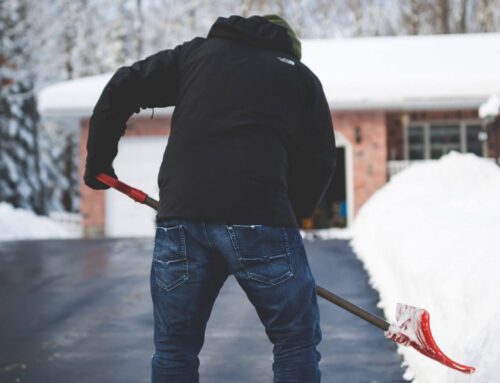Over the last year, our Montclair Physical Therapy newsletters have looked at the importance of exercise, including the production of your body’s ‘feel good’ chemicals.
Many of my patients know I was educated as a child in an Orthodox Jewish shul in Asbury Park, New Jersey. One of the most important pieces of scripture Cantor Blau taught, which has been of lifelong service, is: ‘Your body is a temple. Treat it like one.’ We worked hard during Hebrew school because Cantor Blau always promised – and delivered – a baseball game after studies were over.
In the last 9 months, we have seen unprecedented effects on the way we socialize, work, and remain active (exercise and play). This is particularly true for children and young adults, as “screen time” is rapidly replacing physical activity and play for a large portion of this demographic. The Center for Media and Child Health (CMCH) at Boston Children’s Hospital, recently studied the relationship between screen time and play in kids.
The results of the study states: ‘on the days when children in Boston are playing more, they probably are watching less media. On the flip side, on days when children play less, parents can try to limit screen time and encourage more play to even out the equation. This is important, since regardless of where you live, getting enough play helps kids’ brains and bodies develop in an appropriate way.’ When I read the results, I was reminded of what my mother-in-law always said: “You need a study to tell you that?“ The research is now catching up to cultural wisdom: Play is Important!
Here is my first of nightly Hanukkah gifts for you & yours:
FIRST NIGHT OF HANUKKAH GIFT / TIP: Zero to Eight Years Old
Culturally and scientifically, we know that physical activity, particularly play, from an early age (0-8 years old) should be encouraged as it benefits a child’s cognitive and social development, enhances and promotes the development of motor skills, bone and muscle strength.
David Bickham, the lead researcher at CMCH, offers the following suggestions:
- Help your child transition from screen time to active play time. For instance, if your child is watching a cartoon, turn off the TV and encourage your child to build on the storyline themselves with toys.
- Carve out time specifically dedicated to play.
- Plan activities that incorporate different types of play, including board games, balls, blocks, and role play.
- Practice games using letters or numbers to help your child build important skills.
- Offer to play with your child and follow their lead on what they want to play.
- Give your child some toy and game options, but let them decide what they want to do between the choices you offer.
- Encourage your child to be creative. They might turn meal time or bath time into a game.
- Provide simple household items like cardboard boxes, tissue paper, and egg crates and let your child design their own toys or games.
- It’s okay if you feel overwhelmed right now and find yourself not encouraging your child to play as much as you would like. Many parents are struggling to work, teach their children, and keep up with housework. Be easy on yourself and remember every day isn’t going to be perfect. “The key is trying to help your child have balance,” says Bickham.
Enjoy a healthy holiday season!
TWELVE WAYS TO HELP YOUR KIDS STAY HEALTHY, HAPPY & FIT
My Parents’ Top Six Sayings … Still Good Today:
1) “Stand Up Straight.”
2) “Go Out And Play.”
3) “Turn Off The TV (or computer).”
4) “Go Make Some Friends.”
5) “What Sport Are You Playing This Season?”
6) “I’m Not Driving You. Ride Your Bike.”
… And Six HealthTips
1) “Eat A Balanced Diet”
2) “Your Body Is A Temple. Treat It Like One.”
3) “Interrupt Your Sitting Every 20 – 30 Minutes.”
4) “Follow the ‘10% Rule’ To Get Back In Your Game.”
5) “Use The ‘Traffic Light Guide’ To Prevent Injury.”
6) “Early To Bed & Early To Rise Makes A Man Healthy, Wealthy & Wise.’




